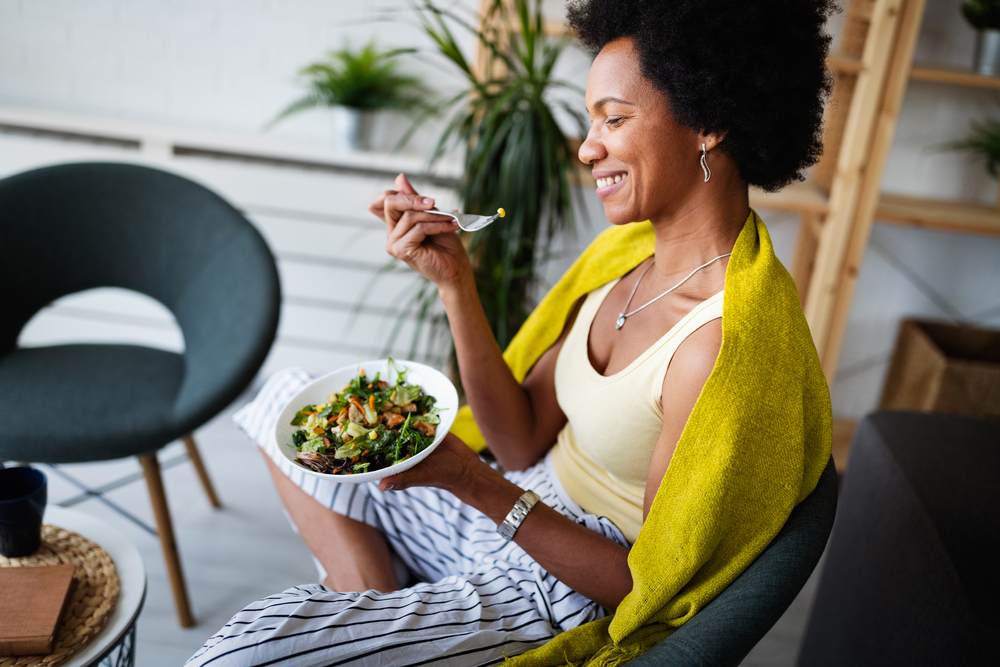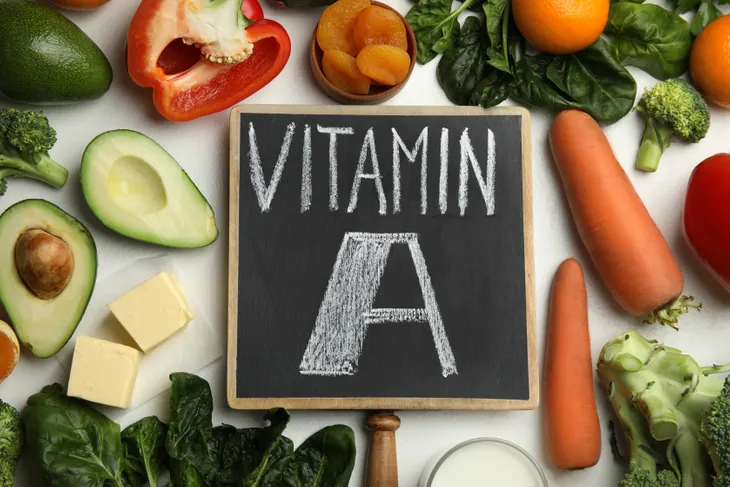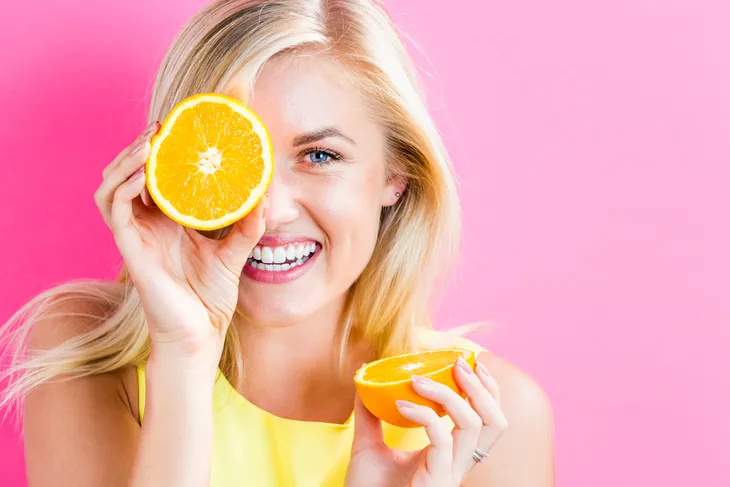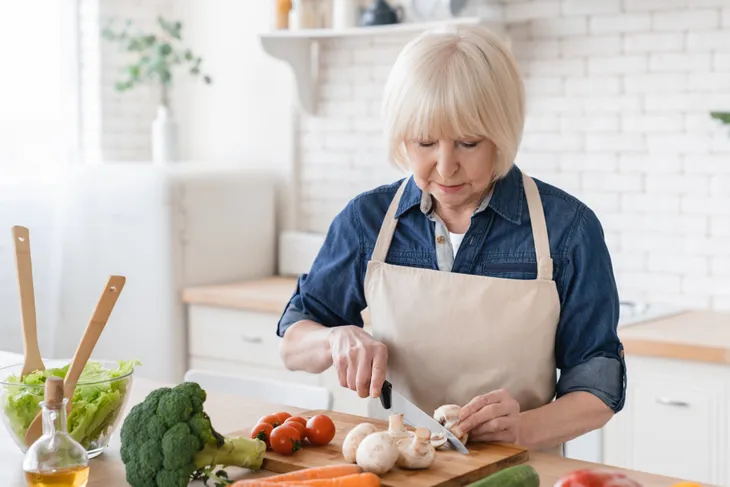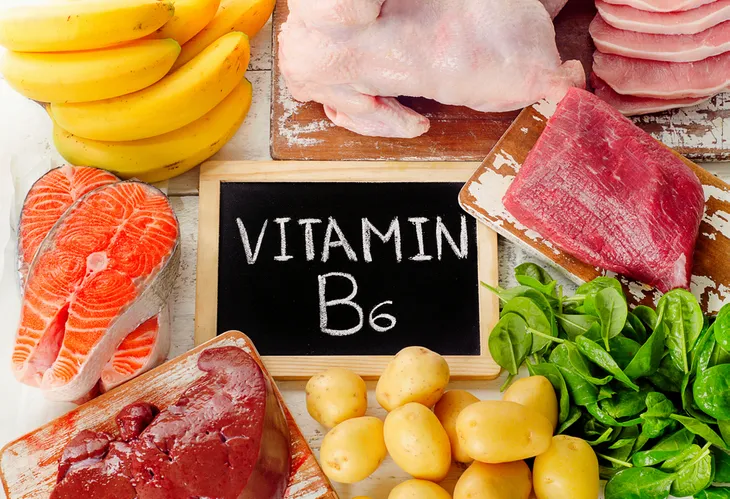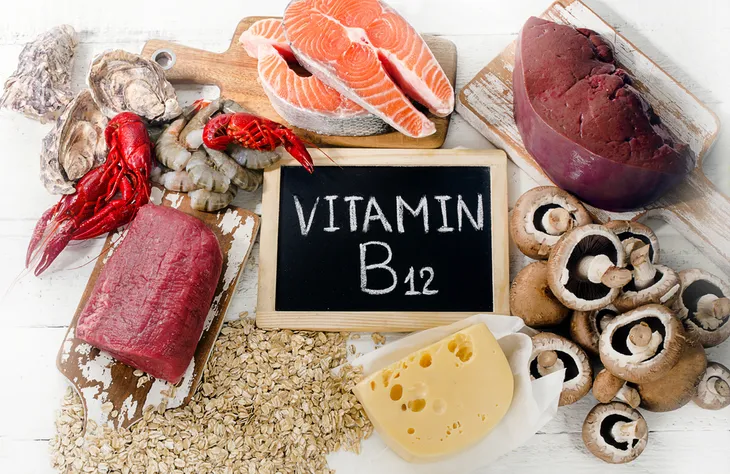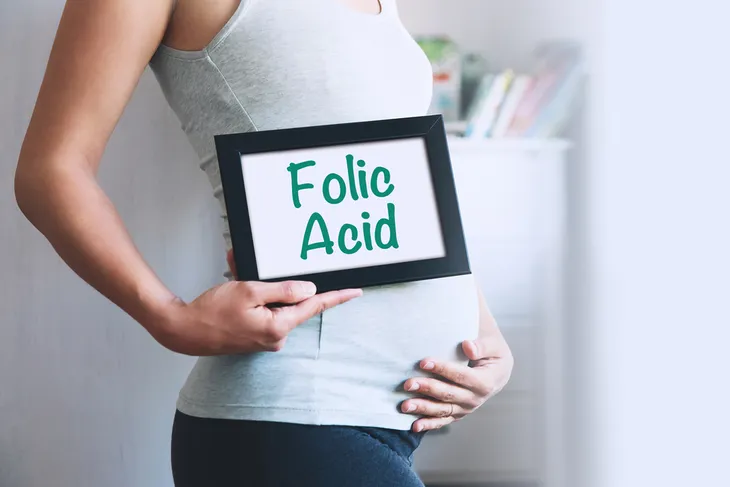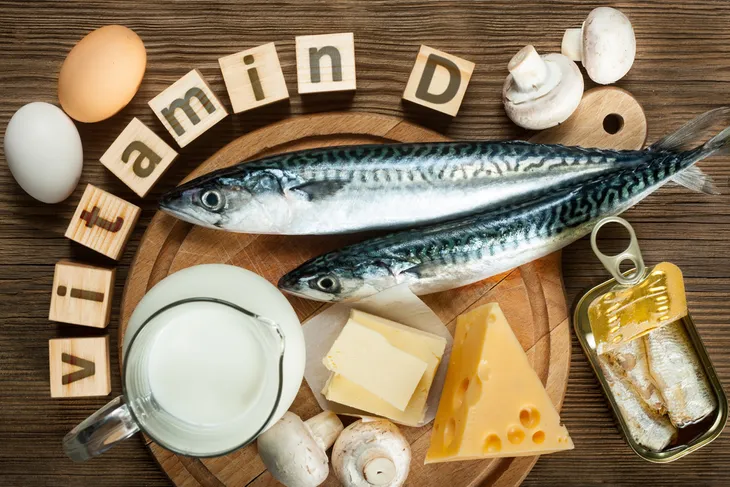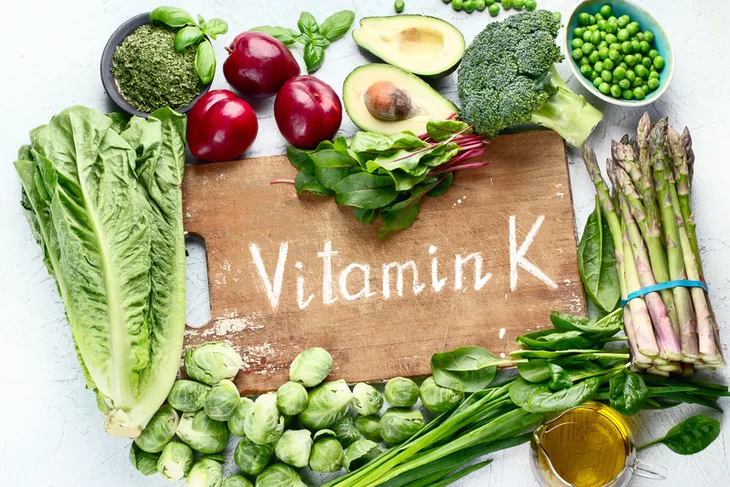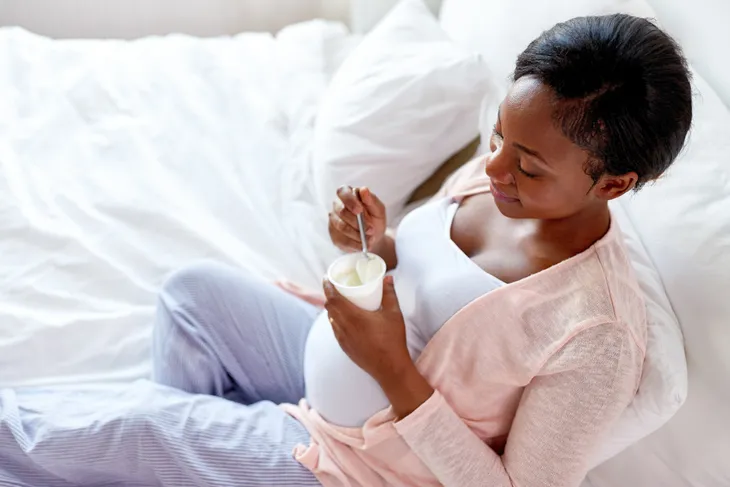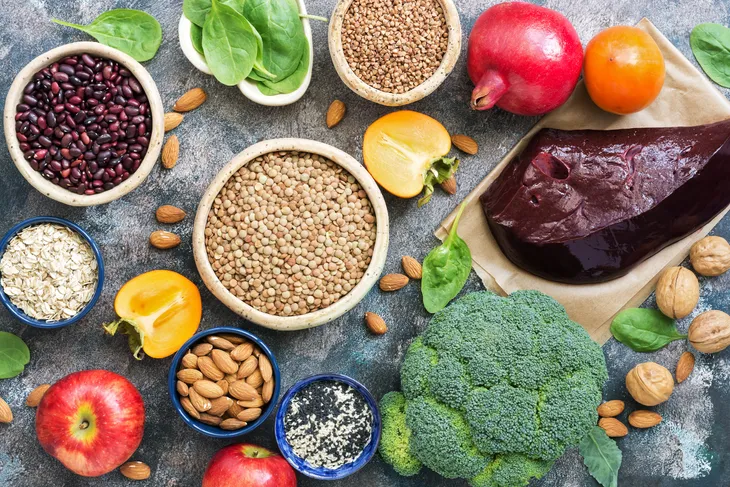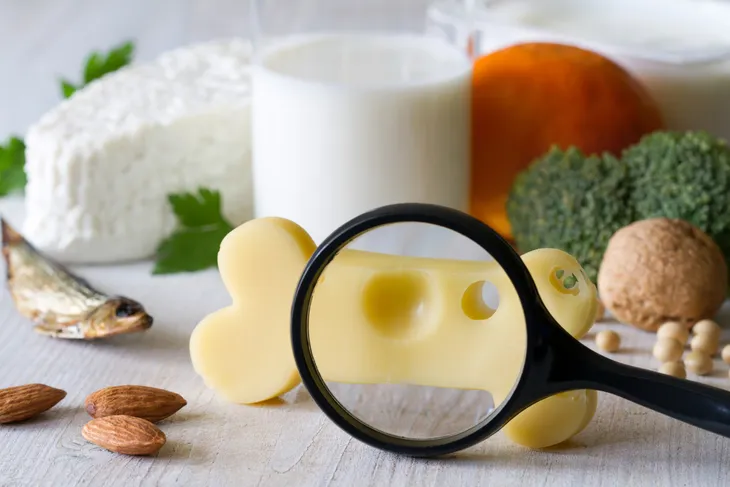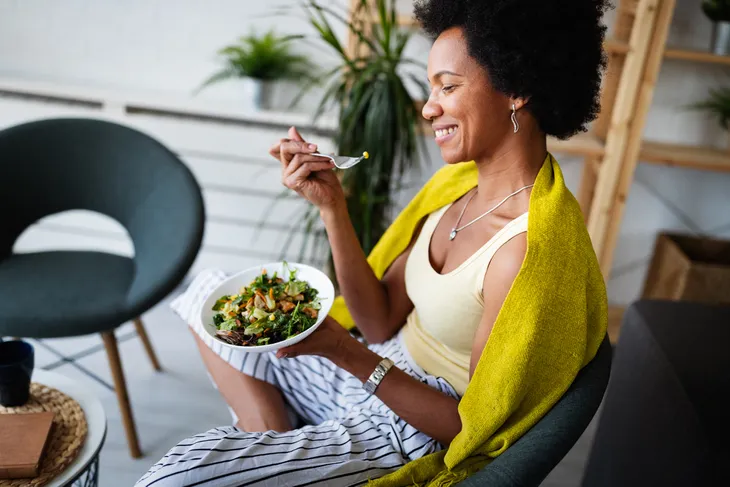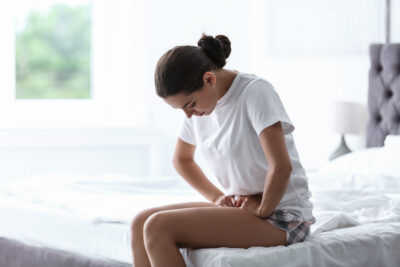- Vitamins are essential for overall health because they promote healthy development, functioning, and protect against a variety of diseases.
- Women are more susceptible to certain deficiencies, especially as they age or during their menstrual cycle. They also require more nutrients while pregnant or breastfeeding.
- Some of the top essential vitamins for women are vitamin A, C, E, D, K and the B vitamins. As well as iodine, iron, calcium, and magnesium.
- You can boost vitamin intake with supplements, but the best way is through food sources.
Vitamins are essential for our overall health. According to Health Harvard, not only do they keep our body healthy and functional, but they also provide protection against a variety of diseases. The source goes on to explain that vitamins are an organic substance produced by plants and animals. They’re deemed essential because our body doesn’t create them naturally (aside from vitamin D). We have to look elsewhere to get them — our diet.
The best way to get all the vitamins and minerals needed on a daily basis is to eat a healthy, well balanced diet full of whole foods. Think fruits, vegetables, whole grains, and healthy fats. Unsure what vitamins are the most important? Here’s a list of the most essential vitamins for women, as well as some of the top food sources for each…
Antioxidants
Vitamin A
Beta-carotene is essentially the same as vitamin A. It starts out as beta-carotene but once it’s consumed, the body changes it to vitamin A, explains WebMD. It is considered essential because it ensures the proper development and function of the eyes, skin, immune system, and many other parts of the body, says Women’s Health.
“Vitamin A makes the list of best vitamins for women, since it plays a vital role in vision support,” writes the source. “Research also suggests that vitamin A may prevent some types of cancer, and improve immune function,” says Keri Glassman, RD when talking to Women’s Health.
The National Institute of Health (NIH) suggests all women strive to get around 700-mcg of vitamin A daily. This amount increases to 770-mcg when pregnant and 1,300-mcg while breastfeeding. Apricots, cantaloupe, carrots, guava, kale, papaya, peaches, pumpkins, red peppers, spinach, and tomatoes all contain vitamin A, says WebMD.
Vitamin C
We often hear about taking or consuming lots of vitamin C when we’re sick or to prevent sickness. While it does have healing and antioxidant powers, this essential vitamin is more known for facilitating normal growth and development, as well as repairing bodily tissues, bones, and teeth, says Women’s Health. It also works to block some of the damage done by free radicals.
Vitamin C, sometimes also referred to as ascorbic acid, helps the body make red blood cells, adds WebMD. “It also boosts levels of the brain chemical called norepinephrine, which makes you feel more alert and amps up your concentration,” writes the source. According to WebMD, studies show that stress and aging can cause ascorbic acid to go down, which is why it’s important to ensure you’re getting ample amounts of vitamin C.
While oranges do have vitamin C, WebMD also suggests broccoli, grapefruit, kiwi, peppers, potatoes, strawberries, and tomatoes.
Vitamin E
Vitamin E, also known as tocopherol (and includes related compounds called tocotrienols) is essential to keep our cells healthy. This antioxidant plays a role in cellular communication, blood vessels, and immune health, notes Healthline. It may also slow down the effects of aging, adds WebMD. Vitamin E is a fat-soluble vitamin, which means it is stored in the body’s tissues and retained for longer periods of time. But this doesn’t mean deficiencies can’t happen.
While it’s rare, Healthline states that deficiencies can occur in women with conditions that cause fat malabsorption and teenagers. Teens over the age of 14 need the same amount as adults, but are more likely to be deficient than the general population. The source notes that above all, pregnant teens are more likely to not meet the daily intake amount for vitamin E. “Many teens consume diets low in vitamins, putting them at risk of deficiency, including during pregnancy, a time during which most nutrients needs are elevated,” writes Healthline.
Foods like corn oil, cod-liver oil, hazelnuts, peanut butter, safflower oil, sunflower seeds, and wheat germ all contain vitamin E.
B Vitamins
Vitamin B6
Vitamin B6 is sometimes referred to as pyridoxine, explains WebMD. It’s needed to keep the brain functioning well and to help the body convert food into energy, also known as our metabolism. While this vitamin is essential, it can also be toxic if a person consumes too much of it at once. Avoid supplements and stick to food sources, warns WebMD.
The need for B vitamins like B6 increases with age, particularly after menopause. “The requirement for vitamin B6 rises from 1.3-mg to 1.5-mg after the age of 50 years,” writes Medical News Today. “It can help support the immune system.” You can find vitamin B6 in fish, potatoes, chickpeas, avocados, bananas, beans, cereal, meats, oatmeal, and poultry, says WebMD.
Vitamin B12
Similar to vitamin B6, WebMD notes this vitamin is essential for a healthy metabolism and to help make red blood cells. Women’s Health also adds that B vitamins contribute to healthy skin, hair, and eyes, as well as maintaining the nervous system, muscle tone, and keeping the mind sharp. Glassman tells the source that a deficiency in B vitamins can cause anemia, tiredness, loss of appetite, abdominal pain, depression, numbness and tingling in the arms, legs, muscle cramps, respiratory infections, hair loss, eczema, poor development in children, and birth defects.
A vitamin B12 deficiency is more common among older adults. According to the Food and Nutrition Board (FNB), 10 to 30-percent of older adults don’t get enough vitamin B12 because their bodies can’t absorb it as well. As a result, the FNB recommends a vitamin B12 supplement and consuming more foods with this nutrient to meet the recommended daily intake.
“Older adults, people with anemia, vegans, and vegetarians should work with a doctor to make sure they get enough of it,” writes WebMD. You can find vitamin B12 in cheese, eggs, fish, meat, milk, and yogurt.
Folate or Vitamin B9
Women who are trying to, currently are or have been pregnant have heard their doctor recommend folic acid supplements. The reason for this is because folate, or vitamin B9, helps build a healthy brain and spinal cord. “It also makes DNA and RNA, the building blocks of cells, and prevents the changes in DNA that can lead to cancer,” writes WebMD.
Folate is an essential vitamin for women, as well as adults and children in general. They need it to build normal red blood cells and prevent anemia, explains the source. But, it’s especially important for pregnant women to prevent birth defects like spina bifida.
WebMD provides a list of foods that are high in folate. This list includes spinach and leafy greens, asparagus, citrus fruits, melons, strawberries, fortified grains, legumes, chickpeas, black beans, kidney beans, eggs, and liver.
Vitamin D
Vitamin D is essential for women because according to Women’s Health, it promotes bone growth, cell growth, neuromuscular and immune function. It’s also useful in reducing inflammation. Without it our bones can thin, become misshapen or brittle which could potentially lead to osteomalacia (softening of the bones) and weaken muscles, warns the source. The NIH recommends every person get 15-mcg vitamin D daily.
Another reason to get the recommended daily amount of vitamin D is because a deficiency in this nutrient has been linked to the development of type 1 and type 2 diabetes. On the other hand, getting enough vitamin D “may provide some protection against colorectal and possibly other cancers,” says Glassman to Women’s Health.
While we can get some vitamin D from the sun, a much safer source is food. You can find vitamin D in fatty fish (i.e. tuna, salmon, and fish liver oils), beef liver, cheese, and egg yolks.
Vitamin K
Vitamin K is particularly important for aging women because it keeps our bones strong, heart healthy, and helps blood clot in older people, explains WebMD. Postmenopausal and older women are at the highest risk for being vitamin K deficient.
“Vitamin K deficiency can occur in women with certain genetic disorders and be caused by inadequate dietary intake or the use of certain medications,” writes Healthline. You can find vitamin K in green leafy vegetables, soybean oil, broccoli, alfalfa, cooked spinach, and fish oil, according to WebMD.
Iodine
This vitamin is particularly important for women who are trying to get pregnant or are pregnant. “Iodine is crucial for the healthy development of the fetal brain during pregnancy,” writes Medical News Today. A 2012 national survey by the Centers for Disease Control and Prevention (CDC) found that women between the ages of 20 and 39 had lower iodine levels than any other age group.
This is not good because this age group is also the most likely to become pregnant, says Medical News Today. Women should aim to get 150-mcg (this rises to 220-mg during pregnancy and 290-mg while breastfeeding) each day. WebMD lists seaweed, cod, greek yogurt, eggs, oysters, enriched bread, and liver, as foods that contain iodine.
Medical News Today warns not to take any iodine supplements without talking to a doctor first. Unnecessary supplementation can have a negative impact on the thyroid. Always talk to a doctor before starting any supplements.
Iron
Iron is responsible for “energy production, wound healing, immune function, red blood cell formation, [as well as] growth and development,” says Medical News today. The recommended daily amount (RDA) of iron for women between the ages of 19 and 50 is 18-mg. This increases to 27-mg during pregnancy and while breastfeeding. Women who are deficient in iron will likely experience fatigue, shortness of breath, and a weakened immune system.
Medical News Today points out that many women in their reproductive years are low in iron or even iron deficient. This poses a problem because iron is essential for reproductive organs and functions. Women with heavy periods should try to eat iron-rich foods or take supplements, says Carol Haggans, RD, a consultant for the NIH to Women’s Health.
Dark green leafy vegetables, lean red meat, chicken, turkey, fish, cereals, beans, and whole grains all contain iron. To help the body absorb iron, eat foods that contain vitamin C (i.e. sweet potatoes or broccoli), adds the source.
Calcium
Most of us heard our parents (and society) tell us to drink our milk in order to grow strong bones. And the truth is, calcium is essential for keeping our bones and teeth strong. It also helps our muscles function, says Women’s Health. It’s especially important for women because they are at risk of losing bone density as they age.
“Women start losing bone density in their twenties,” says Mary Ellen Camire, Ph.D, a nutrition professor at the University of Maine at Orono to the source. “Calcium is your single best defense, and you should start getting plenty of it now.” Since the need for calcium increases for women as they age, the NIH states the RDA for women over the age of 50 is 1,200-mg. Those under 50 should aim for 1,000-mg daily. You can find calcium in most dairy products, as well as non-dairy products like green leafy vegetables.
Magnesium
To maintain normal muscle and nerve function, women need to make sure they are getting the RDA of magnesium. Women’s Health lists a steady heart rhythm, healthy immune system, strong bones, normal blood pressure and blood sugar levels as some of the important bodily functions from magnesium.
“Magnesium is necessary for more than 300 biochemical reactions in the body,” writes Women’s Health. A deficiency could lead to chronic or excessive vomiting, diarrhea, and migraines. People with Crohn’s disease or another gastrointestinal disorder have an increased risk of being deficient. These disorders make it harder for their body to absorb nutrients, warns the source.
Most women (aged 19 to 30) should aim for 310-mg a day. This number increases to 350-mg if you’re in that age range and pregnant. The RDA for women 31 and older is 320-mg (360-mg when pregnant), says the NIH. You can find magnesium in most green vegetables, as well as some beans, nuts, seeds, and unrefined whole grains.
